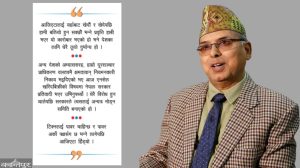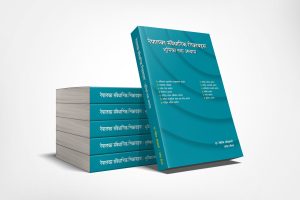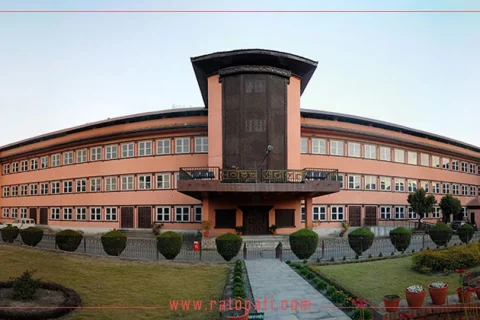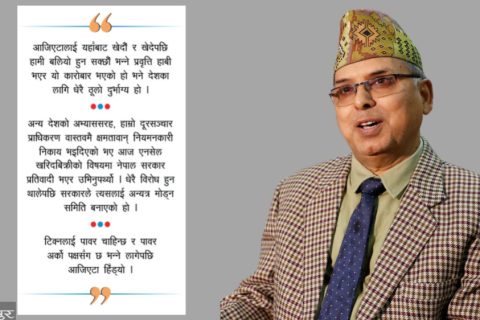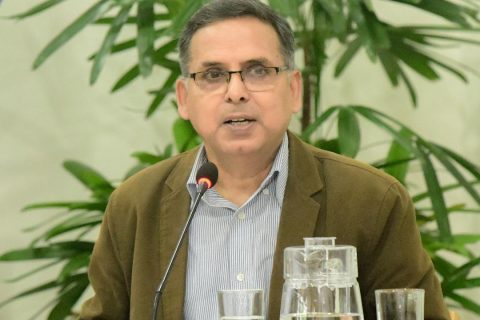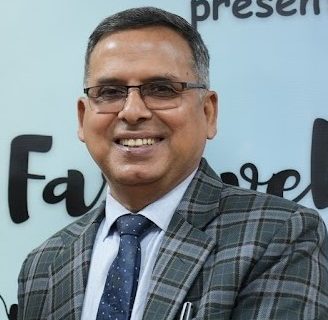Interviewed by: Avash Karmacharya
Source: The Kathmandu Post
Born in Bastipur village of Siraha District, Bipin Adhikari is a prominent lawyer. A graduate from Tribhuvan University’s Institute of Law, he joined the University of Delhi in 1989 to do his Master’s degree in Comparative Laws. Soon, Bipin earned his doctorate in Constitutional Law. His legal apprenticeship and practice as a young lawyer focused on tax and revenue laws.
Following his post-graduation, he started working in the area of constitutional laws, justice-sector reforms, parliamentary practices, resource management and development laws. As a consulting lawyer, he has been working for the public international system in Nepal and abroad. Having been a ‘UNor’ (UN professional) for many years, Bipin operates Nepal Consulting Lawyers Inc, his own law forum. He has written and edited about a dozen of books on constitutional laws and other legal and human rights subjects and is a regular contributor to The Kathmandu Post.
What books are you currently reading or have finished…
I am reading the 2007 Book of Kolin Turpin and Adam Tomkins’ British Government and the Constitution. It deals with the changes the Westminster model of parliamentary democracy is experimenting in the United Kingdom in recent years.
Genre/s that you prefer to read is…
I’m interested in a wide range of subjects, including law, economics, history and current affairs. I don’t like to miss anything significant written about Nepal, but mostly I read genres that involve my profession—legal and constitutional thoughts, new developments and innovations, and perspectives on current issues.
One interesting reading habit that you have…
I have different tastes, rather than habits. Usually, I don’t bother to read if I’m not serious; and when I’m serious, I read, no matter how.
The story behind how you picked up the reading habit is…
As a young college fellow, I used to share my room with my uncle, Sushil Adhikari, who now is a micro finance professional, who used to read a lot as a young professional. I acquired this habit from him.
Writers who have inspired you a lot are…
There are many names that come up. But I mustn’t miss to mention Alexis de Tocqueville (French sociologist and political narrator), B.P. Koirala, Milton Friedman (American economist), Bertrand Russell (British philosopher), Lee Kuan Yew (Singapore’s nation builder and main architect), Michael Porter (Harvard business professor) and Richard Posner (American judge and legal philosopher). They are the most outstanding figures for me.
Tell us about the books that have been your source of inspiration and have touched you deeply…
I don’t wish to confine these books to any numbers. But I would definitely include all the books written by the authors I mentioned above. Needless to say, the first outstanding book that I read was Alexis de Tocqueville’s Democracy in America. For fiction and drama, William Shakespeare’s tragedies like King Lear (1603-1606) and Julius Caesar (1599) were extremely tough and full of archaic expressions.
Which comes first in reading— knowledge or entertainment?
Knowledge is definitely the first one but the thirst for knowledge gives entertainment to every reader.
There’s cinema, television channels, Internet and many other forms of entertainment. Have books been overshadowed?
I really don’t think so. They’re like bread and butter; meaning, they only complement each other.
If you happen to write a book, you’ll write about…
On nation building and development options before Nepal. Of course, I don’t mean research work. These books will be based on my exposure to the countries of Asia and Africa as well, of which I have a broad comparative understanding.
How much time and money do you spend on books?
I don’t have figures. I buy books when it’s necessary and manage time everyday to read some pages.
What would you want to advise young aspiring readers…
Reading is both fun and enlightening. It doesn’t take much to be well-read, but everyone needs to know how to get started. Turn off the television, and time will never be a problem.
Your favourite saying on reading…
I never forget Mark Twain who said, “The man who does not read good books has no advantage over the man who cannot read them.


